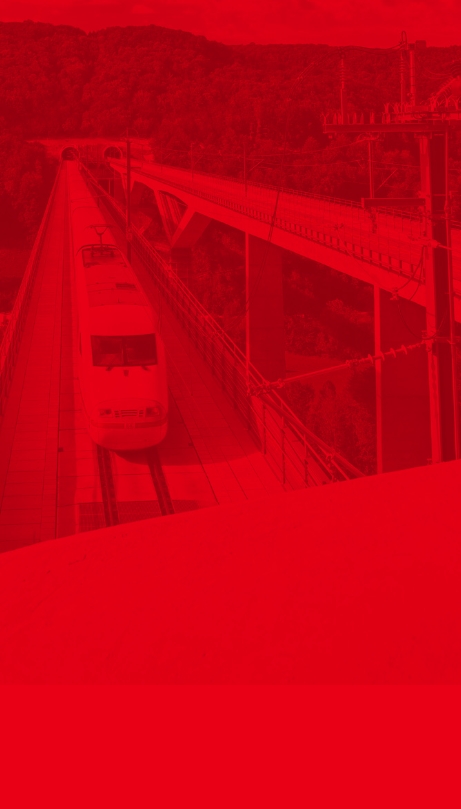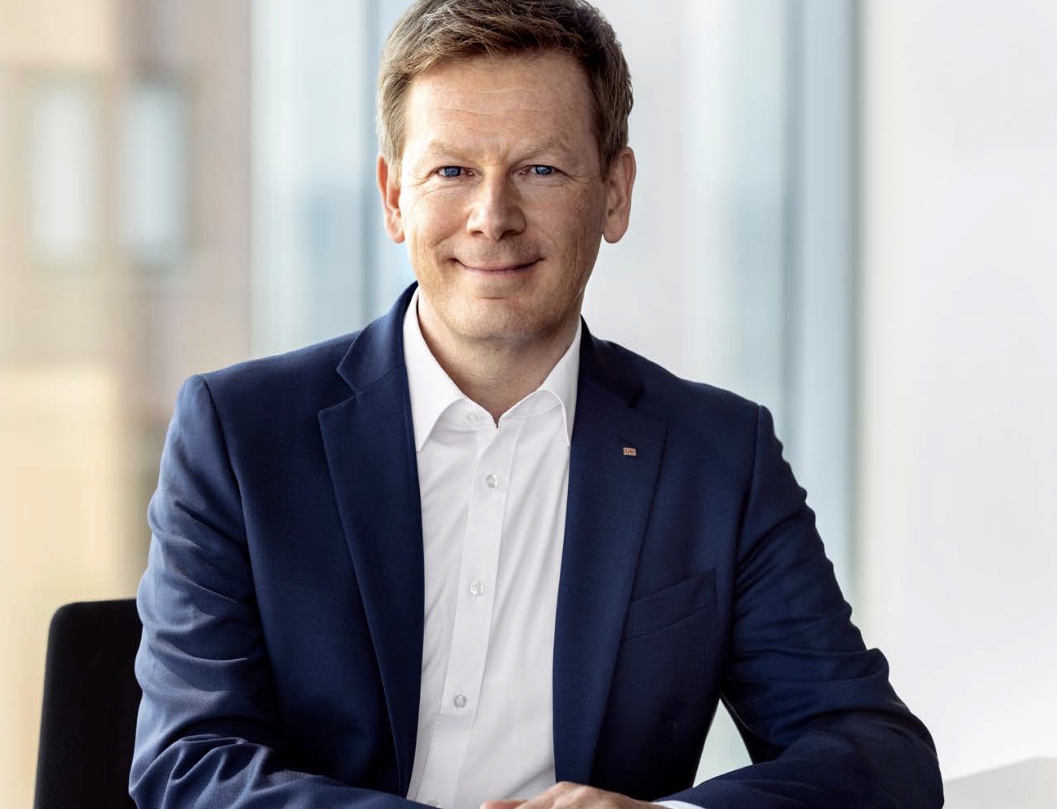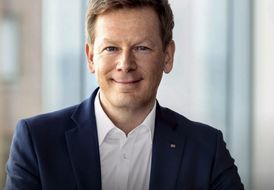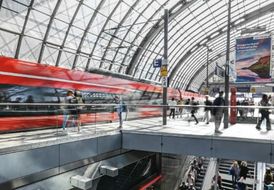
letter

Chairman's letter
Dear readers,
The central characteristic of our time is change. Not just in a positive sense, as the events and developments of the past year have made more than clear. Climate change is also forcing us to adapt. We must do everything we can to mitigate its consequences. The railway is essential for this. This is not only something we are convinced of, but it is also the political and social consensus. In the future, only climate-friendly mobility will be viable. And the trend towards climate-friendly mobility is in full swing.
This is impressively demonstrated by the rapid return of our customers last year. In long-distance transport, we were able to increase our revenues by more than two billion euros compared with the previous year and, for example, record passenger records again in summer as well as during the Christmas period. In the area of private travel, we are above the level of 2019. Regional transport is also recovering and was given a particular boost by the 9-Euro-Ticket.
The return of passengers is one of three reasons why, despite a more than challenging environment – with record inflation, the energy crisis and recession concerns – the past year was an economic success for DB Group: the net operating profit was 1.25 billion euros. We were able to outperform our target of “breaking even” for 2022.
financially
successful year for
DB Group.«
Another reason for the positive operating result was energy price hedging and long-term supply contracts, which is why we were not so severely affected by high inflation in 2022, especially the rising energy costs. And thirdly: logistics continued to boom. DB Schenker performed excellently and was able to achieve the highest profit in its company history.
However, for DB, 2022 was also the year in which the rail network reached its limits. It is too old, too prone to faults and has too little capacity. Therefore, in both passenger and rail freight transport, we were unable to offer the quality that our customers quite rightly expect from us and which is also our own aspiration. For this reason, it was clear to all parties involved: we need to radically change course. Germany needs a robust and efficient infrastructure. This means looking at how we renovate and modernize the rail network – we need a completely different approach with immediate effect.
different approach in the
future to the modernization
of the rail network.«
We have set the course for this change in the past year. Together with the Federal Government, we seized the opportunity in the acute crisis to pave the way for sustainable structural changes. By 2030, we will be working together with the Federal Government and the industry as a whole to expand the highly utilized sections of our rail network into a high-performance network – a network that lives up to its name and forms the basis for more quality and growth. The first corridors have already been determined: the general renovation of the Riedbahn between Frankfurt am Main and Mannheim will begin in summer 2024. One year later, the Hamburg—Berlin and Emmerich—Oberhausen lines will follow. 2023 is a year of transition, in which we will get everything ready to implement the high-performance network.
that railways
are the future!«
But that’s not the only major shift: together with the Federal Government, we are in the middle of the development and implementation of a new architecture for the railway infrastructure in Germany. As provided for in the coalition agreement, the infrastructure will be aligned with the greatest possible benefits for the general public. This is in line with the aspiration formulated in our Strong Rail strategy: we see it as our social responsibility to do everything we can to achieve climate goals and transport policy objectives and to strengthen Europe. Our commitment to sustainable and responsible corporate governance and the principles of the UN Global Compact is also an expression of this responsibility.
2023 marks the new era of change. This offers the great opportunity to advance the climate-friendly rail sector even further through structural changes. That is why we are also looking forward to the introduction of the Germany-Ticket as the successor of the 9-Euro-Ticket. It is another strong argument for the switch to climate-friendly means of transport.
One thing is clear: the overall economic situation remains challenging. We will also have to deal with massive cost increases, for example due to sharp increases in energy costs and purchase prices. But I am convinced that railways are the future! This is demonstrated by the demand, which has continued to recover strongly despite all the crises. This demonstrates the unity with which politics and society are working to strengthen the railway.
Sincerely,

Dr. Richard Lutz
CEO and Chairman of the Management Board of
Deutsche Bahn AG
This may also interest you

Video statement of the CEO and Chairman of the Management Board
Change characterises our time, as the events and developments of the recent past have clearly shown.
Read more

Interactive key figure comparison
The interactive key figure comparision offers you a selection of the most important key figures in the economic, social and environmental area.
Read more

Setting the course for change
DB Group has overcome the effects of the Covid-19 pandemic and has further improved its own greenhouse gas footprint on the way to climate neutrality.
Read more
